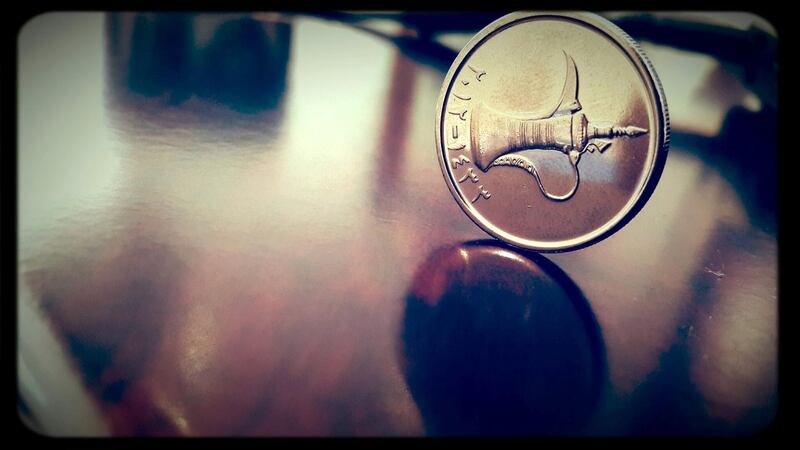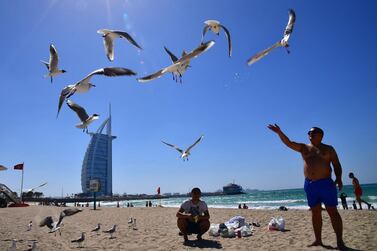Dubai and Abu Dhabi rose up a global ranking of the most expensive cities for expatriates to live, as currencies pegged to the US dollar – such as the UAE dirham – strengthen on the back of the greenback’s performance.
While the UAE's higher position on the Cost of Living Survey from global consultancy Mercer, indicates it is a more expensive place compared to other cities, the strong dollar benefits residents because of cheaper prices.
Dubai moved up to position 21 from 26 last year on the annual study, retaining its position as the most expensive city to live in the Arabian Gulf, Abu Dhabi rose to number 33 from 40. Riyadh, Saudi Arabia also rose to 35 from 45th place on the ranking of 209 countries, which measures the comparative cost of more than 200 items in each location including housing, transportation, household goods and entertainment.
"Due to the strong performance of the US dollar over the past 12 months, rising substantially – over 8 per cent – versus the euro, the value of GCC currencies pegged to the dollar, like the dirham, also rose," Vladimir Vrzhovski, Mercer's global mobility consultant for the Mena region, told The National, adding that this only makes UAE living costs higher to those living outside the country because of the exchange rate.
“While cities in the UAE have risen up the rankings for cost of living, the country continues to be an appealing location for expats due to highly competitive compensation packages, falling real estate prices, high safety standards, and a healthy economy," he said. "The local inflation level has come down for the last 12 months due to falling rental prices and the full phase in of the VAT implementation.”
The UAE federal and emirate governments have rolled out a number of stimulus packages over the past year, in line with UAE Vision 2021 to boost non-oil sector growth. Measures include relaxing foreign ownership requirements and introducing long-term visas to spur the private sector and promote long-term residency. The Mercer study said the higher ranking for UAE cities compared to European cities, due to the dollar peg, also reflects the continued success of the drive to diversify and mature its economy.

The stronger dollar is actually benefitting residents in terms of living costs.
“The UAE imports a lot of goods from Europe and China, for example, so technically those imports have become cheaper hence the local prices have come down significantly,” said Mr Vrzhovski. “So, this is in fact a very relative ranking because while from an outside perspective the UAE has become more expensive, at the same time we see cheaper products based on the US dollar performance.”
One of the main drivers of cheaper costs for existing residents are falling property prices with the UAE market slowing in recent years on the back of a three-year oil slump that has dampened demand and contracted sales and rental prices. Residential rents in Abu Dhabi in the first quarter of this year, for example, fell 6.9 per cent year-on-year and 2.1 per cent quarter-on-quarter, according to data from real estate consultancy ValuStrat.
While Dubai and Abu Dhabi offer similar rental prices to residents, Mr Vrzhovski said the capital's lower position on the ranking was due to slightly cheaper pricing in certain categories, said Mr Vrzhovski
"Overall we have a 3 per cent difference, excluding accommodation, looking at pure cost of goods and services basket," he said. Food consumed outside the home is 12 per cent cheaper in Abu Dhabi and home services, such as domestic help and maintenance, are 15 per cent cheaper, while clothing and footwear is 5 per cent cheaper.
Globally, Hong Kong retained its position as the most expensive city for expatriates for the second year in a row, along with Tokyo, which reclaimed second place. Singapore came third, moving up one place from 2018, while Seoul and Zurich took fourth and fifth position, respectively.
Eight out of the top 10 world’s most expensive cities for expatriates are Asian because the high cost of consumer goods and expensive housing markets drive up the cost of living, Mercer found.
“One of the biggest challenges in these mega cities is the impact of the US dollar which is driving the cost up, and the strong housing markets particularly in Hong Kong and Singapore where they have a scarcity,” said Mr Vrzhovski.
In a direct comparison between Dubai and two of the top three most expensive cities, Hong Kong and Singapore, the emirate was the most affordable for car ownership. While the cost of purchasing, registering and maintaining a four-door economy car costs $26,136.53 ( Dh96,000) per year on average in Dubai, it costs $33,817.84 in Hong Kong and $77,398.74 in Singapore.
“Different governments have different taxes and [car ownership costs] depend on the government's agenda, whether it's moving towards public transport or cheaper fuel prices," said Mr Vrzhovski.
Going to a concert, however, is more expensive in Dubai than the other two cities, costing $541.79 for two seats to see an international artist in the emirate compared to $328.25 in Hong Kong and $233.43 in Singapore.
Tunis in Tunisia was the least expensive city ranked while Ashgabat in Turkmenistan experienced the highest increase, moving 36 positions up the ranking. “Turkmenistan is suffering from foreign currency shortages while the Turkmenistan manat is exchanged at a fixed rate to the US dollar,” said Mr Vrzhovski. “The currency contributes to boosting its domestic economy by producing local substitutes for international imports which, if available, are increasingly expensive.”









